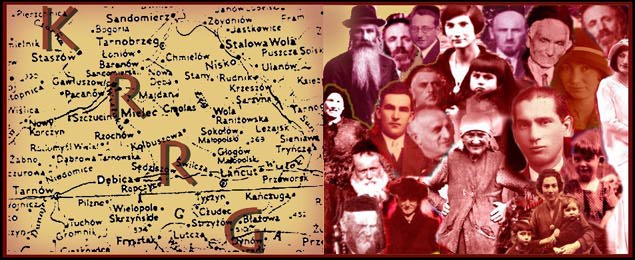


Verstandig, Mark
I REST MY CASE
Melbourne University Press
ISBN 0522 84781 1.About the author:
Mark Verstandig's book spans pre- Holocaust life in Mielec , The deportation of Jews , the Holocaust and accounts of the displaced camps where Jews waited for their chance to emigrate.
The book was written in Yiddish and translated by his daughter ( a member of our group) Felicity Bloch.
"Late Sunday night, when the Jews were all sleeping peacefully, numerous
truckloads of SS and Polish police from neighboring towns arrived, encircling the town and cutting off even the smallest lanes. The Aktion had been planned with military precision. About seven in the morning the Germans began using loudspeakers to summon the Jews, women and children, young and old, to the marketplace. They were instructed to bring up to 25 kilos of luggage with them, especially bedding, but only what they could carry. There were so many Polish and German police that they were able to knock on every door. Before the war, the Jews in Mielec had numbered about 5500. By the beginning of 1942, the number had risen to about 10,000. Jews from surrounding villages and smaller shtetls had been forced to leave their homes and move there, while Jews from other towns, including Cracow, had moved to Mielec because the town had a good reputation and the harsher effects of the German occupation were hardly felt there.In that cold, early morning of 9 March 1942, the cobblestones of the main square, where about 10,000 Jews were assembled, were covered with hard snow. It began to snow heavily. The square was overcrowded and, as soon as groups of people began arriving, the SS led away the young men, despatching them to a concentration camp in Pustkow, about ten kilometres from Mielec on the road to Debica, and to Cyranka-Berdechow near Mielec, where the barracks of the old military airfield were taken over for a work camp.
Under armed guard on both sides, all the other men, women, and children were marched in the direction of Berdechow, a village with a military airfield about seven kilometres from Mielec. Before the march began, my father, a tall, dignified, grey-haired figure in his black woolen coat and polished black calf-leather boots, attracted the attention of an SS officer who demanded his boots: my father had to
walk barefoot in a blizzard for seven kilometers. The Polish 'Blue Police', who had assisted the Germans in the roundup and the march, were not allowed past the perimeter of the military airfield, and did not witness the subsequent executions.As soon as they arrived, the first selection took place. Fifteen hundred elderly and women, including my father were shot on the first day……"
(Quoted portion reprinted with permission)
© Copyright 2002 Kolbuszowa Region Research Group. All rights reserved.